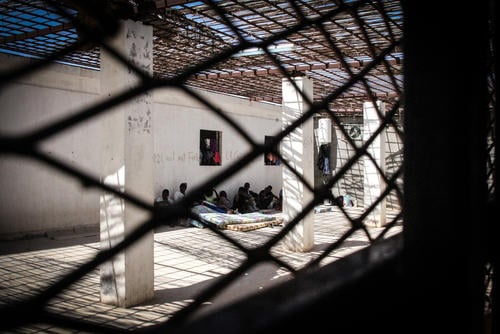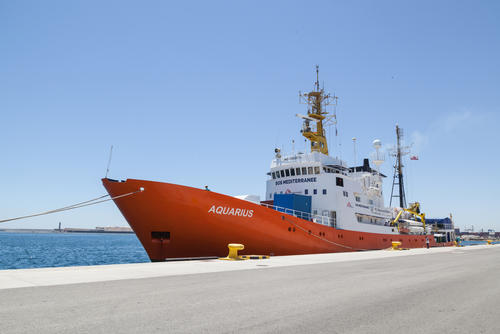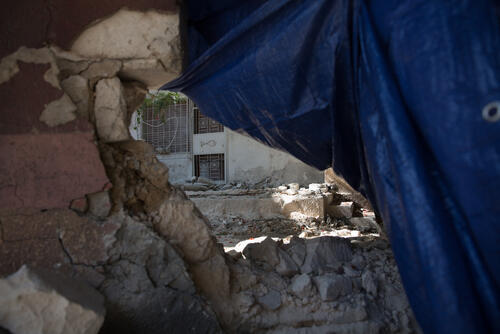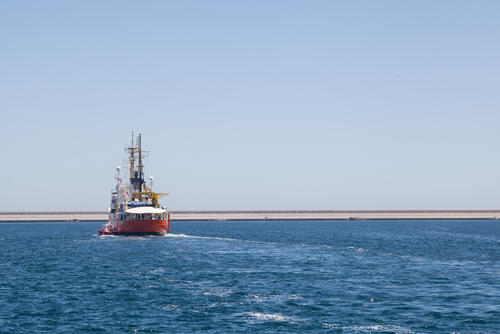On 20 November, Libyan security forces conducted an operation to forcibly disembark 81 refugees and migrants remaining on the Panamanian-flagged cargo ship Nivin, docked in the commercial port of Misrata, while an MSF team was prevented from accessing the area.
Among the group forcibly disembarked, there were over 20 minors, people who reported having been victims of trafficking and torture, and others declaring to be registered with the United Nations refugee agency, UNHCR.
"Since then, we have not had access to any members of the group previously on board the Nivin," says Julien Raickman, head of mission with MSF in Libya.
We are extremely concerned by the lack of official information regarding their current location and medical statusJulien Raickman, head of mission with MSF in Libya
"We are not authorised to see patients we had previously been able to treat and follow up for 10 days, and we are extremely concerned by the lack of official information regarding their current location and medical status," Raickman adds.
The initial group of 97 people on board the Nivin should not have been returned to Misrata but brought to a port of safety in accordance with international and maritime laws. Based on official UNHCR positioning, Libya cannot be considered as such.
Between 11 and 18 November, prior to the forced disembarkation, MSF medical staff carried out over 90 medical consultations on board the Nivin.
On 14 November, 14 vulnerable people left the Nivin and were transferred to official detention centres. The rest of the group continued to refuse to disembark in Libya, for fear of having to face arbitrary detention and other dangers they have already experienced first-hand during their stay in the country.
"We are appalled to see that after 10 days, despite our repeated calls to avoid a violent outcome, no compromise was reached to implement an alternative to detention," says Raickman.
"What happened instead has once again demonstrated a failure to provide much-needed protection for people seeking safety."
The reality today is that people being intercepted at sea and brought back to Libyan shores in violation of international law and maritime conventions are left with no other option than indefinite arbitrary detention.
What happened has once again demonstrated a failure to provide much-needed protection for people seeking safetyJulien Raickman, head of mission with MSF in Libya
This tragic situation is the result of deliberate and concerted efforts by Europe to prevent refugees, migrants and asylum seekers from reaching its doorsteps at any cost.
Most recently, Italy went a step further in branding people who flee for their lives and those who assist them as criminals, by requesting the seizure of the Aquarius search and rescue boat, operated by MSF and SOS MEDITERRANEE, for alleged anomalies in its disposal of on-board waste.
This follows two years of smear campaigns, judicial investigations, and bureaucratic obstacles against our humanitarian work.






